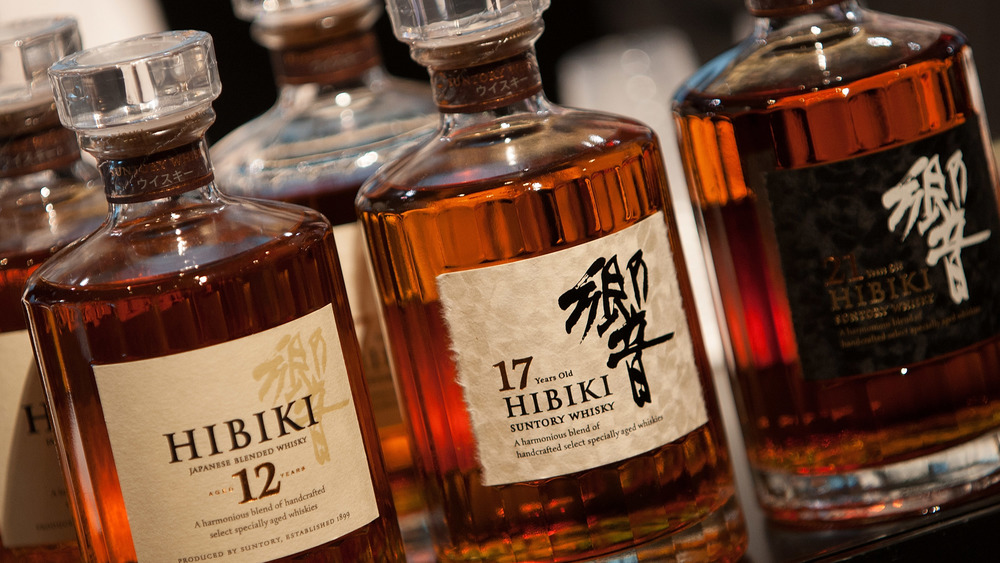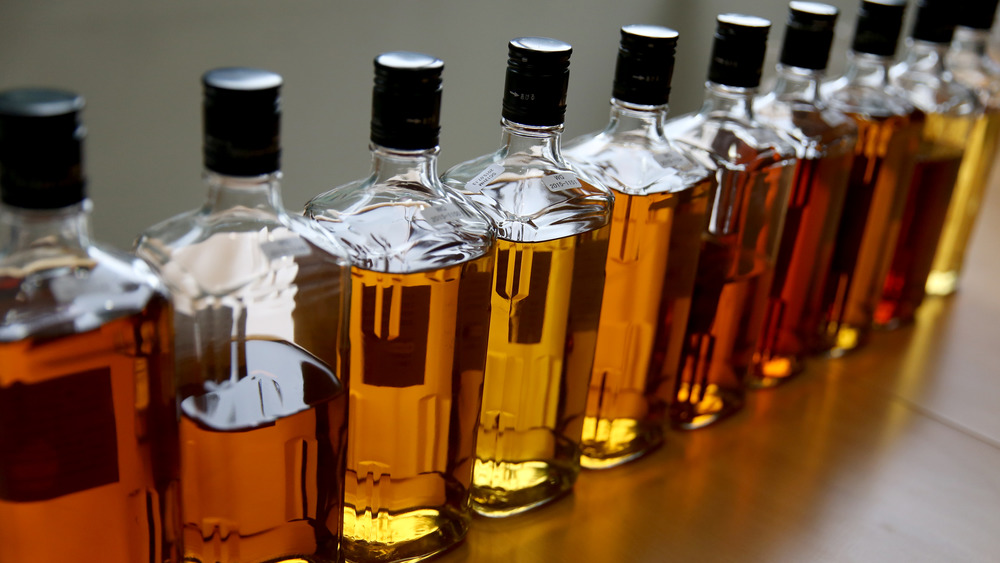The Surprising Reason Japanese Whisky Is Tightening Its Rules
In February of this year, the Japan Spirits and Liqueurs Makers Association (JSLMA) set rules for what a Japanese whisky is. The whisky now has to be made with malted grains and distilled in Japan. Its production method, from creation to aging and bottling needs to be done in the country. And if any additive is to be included in the beverage, only "plain caramel coloring" would be allowed (via Bloomberg). The new regulations might baffle an ardent whisky fan, but to those who love the drink and have paid out significant amounts of cash for it, the new regulations are a step in the right direction.
Until now, there were no clear rules that defined exactly what a Japanese whisky was, and in several exposés that ran last year, experts were calling out the fact that not only were a number of award-winning whiskies not distilled in Japan, some of the whiskies were not whiskies at all. In May 2020, The New York Times revealed that Japanese distillers could buy large quantities of whisky from countries like the U.S., Canada, or the UK and call it Japanese. They could bottle shochu, which is made with rice or barley, and call it whisky. Some distillers didn't even bother distilling the spirit themselves — they imported it — and got another company to bottle it. As whisky expert Stefan van Eycken tells Bloomberg, if regulations "were any looser, you'd be able to sell tap water as Japanese whisky."
The rules are not as straightforward as they seem
Bloomberg reports that the regulations, set to take effect in April of this year, only apply to new products. Spirits currently on sale have until March 31, 2024 to comply. Even then, Forbes highlights the fact that the standards cannot be legally enforced.
Still, top-selling whisky brands, like Nikka, are prepared to make adjustments to meet the new rules. One Nikka spokesperson admitted to Bloomberg that some of their products don't comply with the new standards because some of their blended whiskies contain Scottish spirits. Still, the spokesman says Nikka isn't planning to change their blend, because their priority is to keep the flavor of its spirit consistent. Nikka's admission that its whisky is the result of a blend is jarring, because fans had no idea it was a blend that included spirits that did not originate from Japan. Bloomberg says a bottle which should retail for $65, can fetch up to $200.
There is still a chance imposter whiskies could make it into the market. Not everyone is like Nikka, and while the JSLMA's members are in lockstep with these changes, whisky expert Dave Broom says there are still loopholes. "As it stands there is nothing to stop a bottler/shochu producer who isn't a member of the association to continue to release dubiously labeled liquid," he tells Forbes. Broom is calling for labeling which will help the average consumer distinguish between a genuine Japanese whisky and a wannabe.

